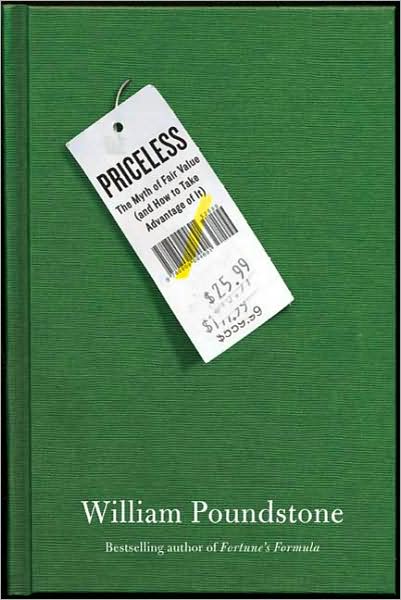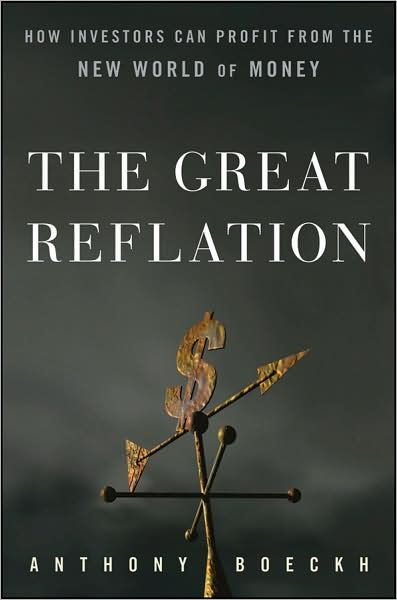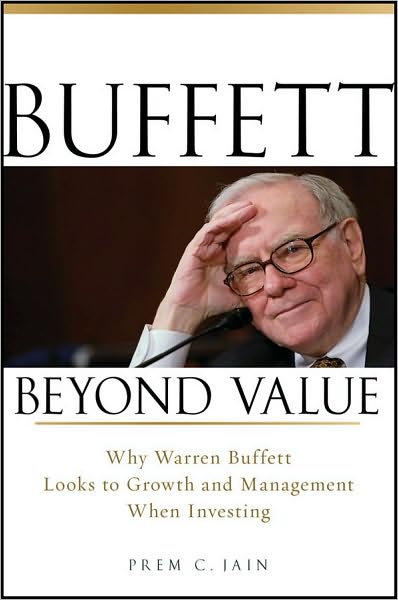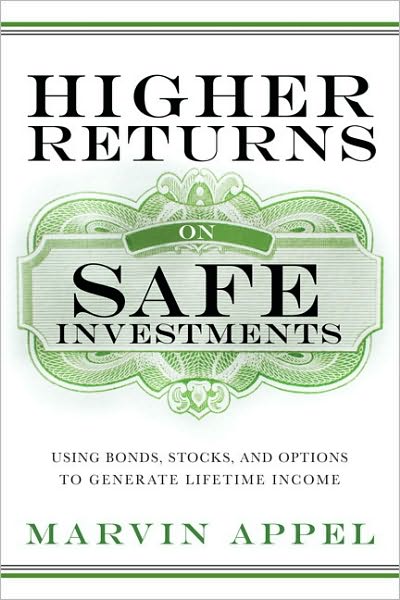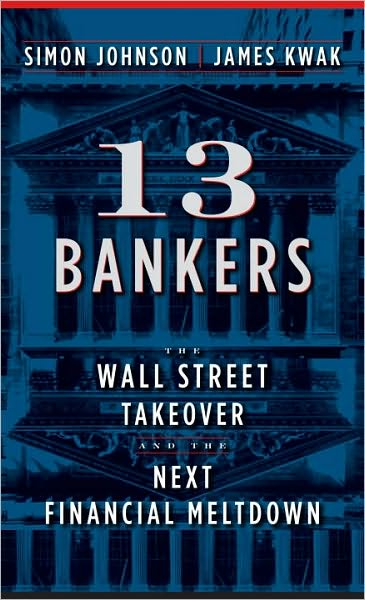Book Review: Priceless
I really enjoyed the book Fortune’s Formula: The Untold Story of the Scientific Betting System That Beat the Casinos and Wall Street (review forthcoming), so when I learned the William Poundstone had written a new book, I went out and bought it.
This book, Priceless: The Myth of Fair Value (and How to Take Advantage of It), covers rationality in decision making, and how markets and marketers take advantage of the deficiencies in rationality in average people.
There are many in the investment community that admire behavioral finance, and many who say that it might be true, but where are the big profits to be made from it?
This book doesn’t cover behavioral finance per se, but it does cover its analogue in pricing and marketing.? In a negotiation, the first person to put a price on the table tends to push the final price agreed to closer to his price.? Leaving aside no-haggle dealerships, why do car dealers post high prices for vehicles?? Because only a minority does the research to understand what the minimum price is that a dealer will accept.? The rest pay more, often a lot more.? Personally, I do a lot of research before I buy a car, and it helps me spot dealer errors in pricing.
The book is replete with examples of how there is no “fair” way to price things out.? What are the proper damages for a jury settlement?? The attorney for the plaintiff is incented to come up with the highest believable amount for the jury, because they will render a verdict less than that.? Make the ceiling as high as possible, and the plaintiff will get more.
We call placing the first price on the table “anchoring,” because it pulls the final result toward itself.? The book is filled with experiments dealing with anchoring.
The book also spends a lot of time on the “ultimatum game,” where a person gets $10, and must offer some of it to a second person, but if the second person turns him down, the first person gets nothing.? The main lesson here is that pride is stronger than greed.? Yes, it can be construed as a question of fairness, but when someone gives up money to deny money to someone else, it is not fairness but envy.? Why pay to make someone else worse off?? To teach him a lesson?? What an expensive lesson.
Much of this book was a walk down memory lane for me.? I discovered Kahneman and Tversky in the Fall of 1982, and I found their ideas to be more cogent than much of the “individuals maximize utility” cant that was commonly heard from most professors teaching microeconomics.? People are far more complex than homo oeconomicus.? Small surprise that most tests of microeconomics as a system are not confirmed by the data.
Kahneman and Tversky showed via a wide array of examples that the decisions people make are affected by the way they are presented to them.? People can be manipulated in limited ways in order to affect the decisions that they make.
The book deals with many marketing tricks, particularly the powerful word, “free,”? and how it dupes people into buying something to get something for free.? For another example, why companies sell really expensive items that few will want, because people will buy the next most expensive item with greater probability, versus less expensive items of the same class.
Other topics covered include:
- The virtue of complex billing
- Why nines work well in pricing.
- Alcohol, and its value in bargaining
- How changing symbols can affect willingness to deal.
- Why to keep a ‘neutral’ friend with you in bargaining.
- And much more.
I really enjoyed the book.? It won’t be of as much value to investors, but it will be of great value to consumers.? Learn how marketers trick you.
If you want to buy the book, you can buy it here:? Priceless: The Myth of Fair Value (and How to Take Advantage of It)
Who would benefit from this book
Most people would benefit from the book.? We all need to understand our thinking biases better, so that we make smarter purchases, and avoid wasting money.? If the ideas of the book are applied well, you could pay for the book many times over in a year.
Full disclosure: I bought my copy with my own money.
If you enter Amazon through my site, and you buy anything, I get a small commission.? This is my main source of blog revenue.? I prefer this to a ?tip jar? because I want you to get something you want, rather than merely giving me a tip.? Book reviews take time, particularly with the reading, which most book reviewers don?t do in full, and I typically do. (When I don?t, I mention that I scanned the book.? Also, I never use the data that the PR flacks send out.)
Most people buying at Amazon do not enter via a referring website.? Thus Amazon builds an extra 1-3% into the prices to all buyers to compensate for the commissions given to the minority that come through referring sites.? Whether you buy at Amazon directly or enter via my site, your prices don?t change.


